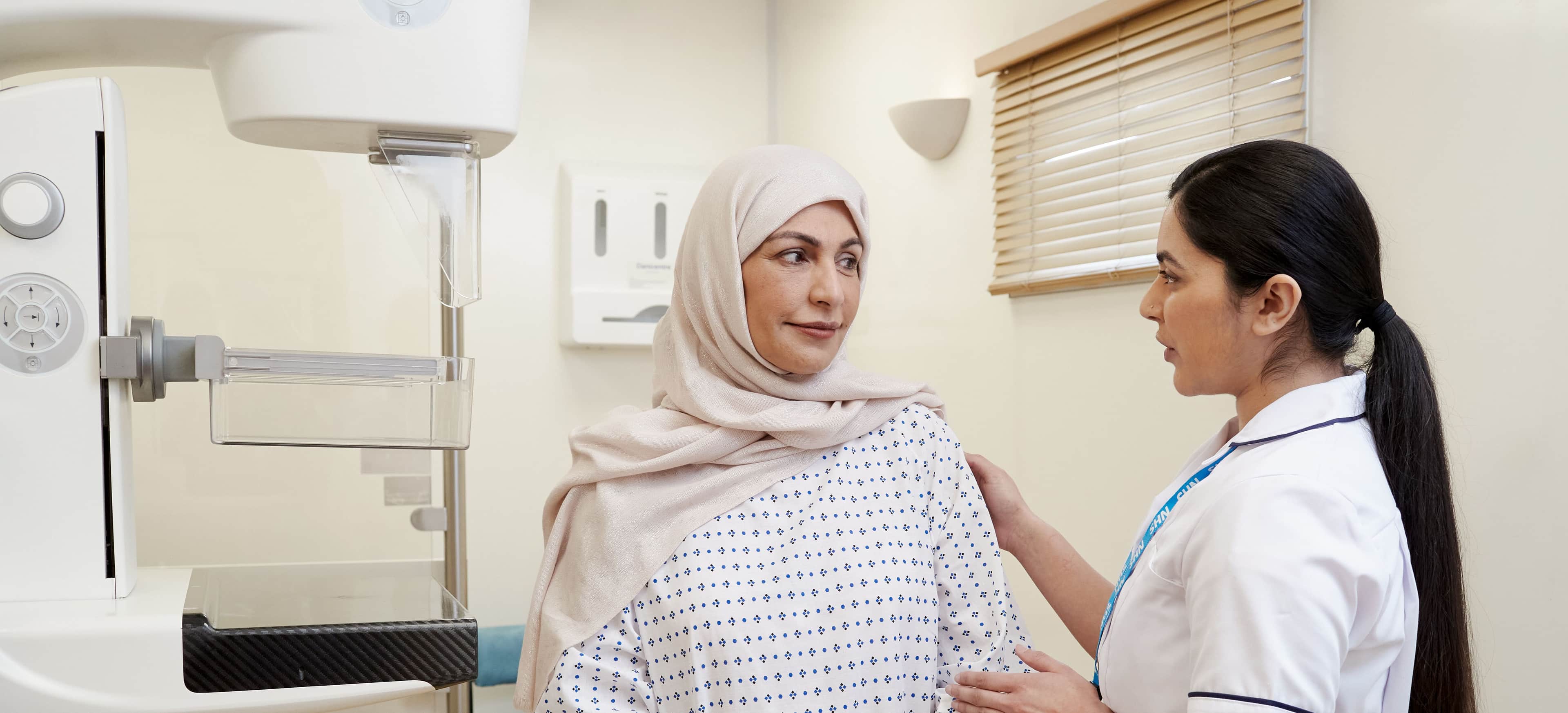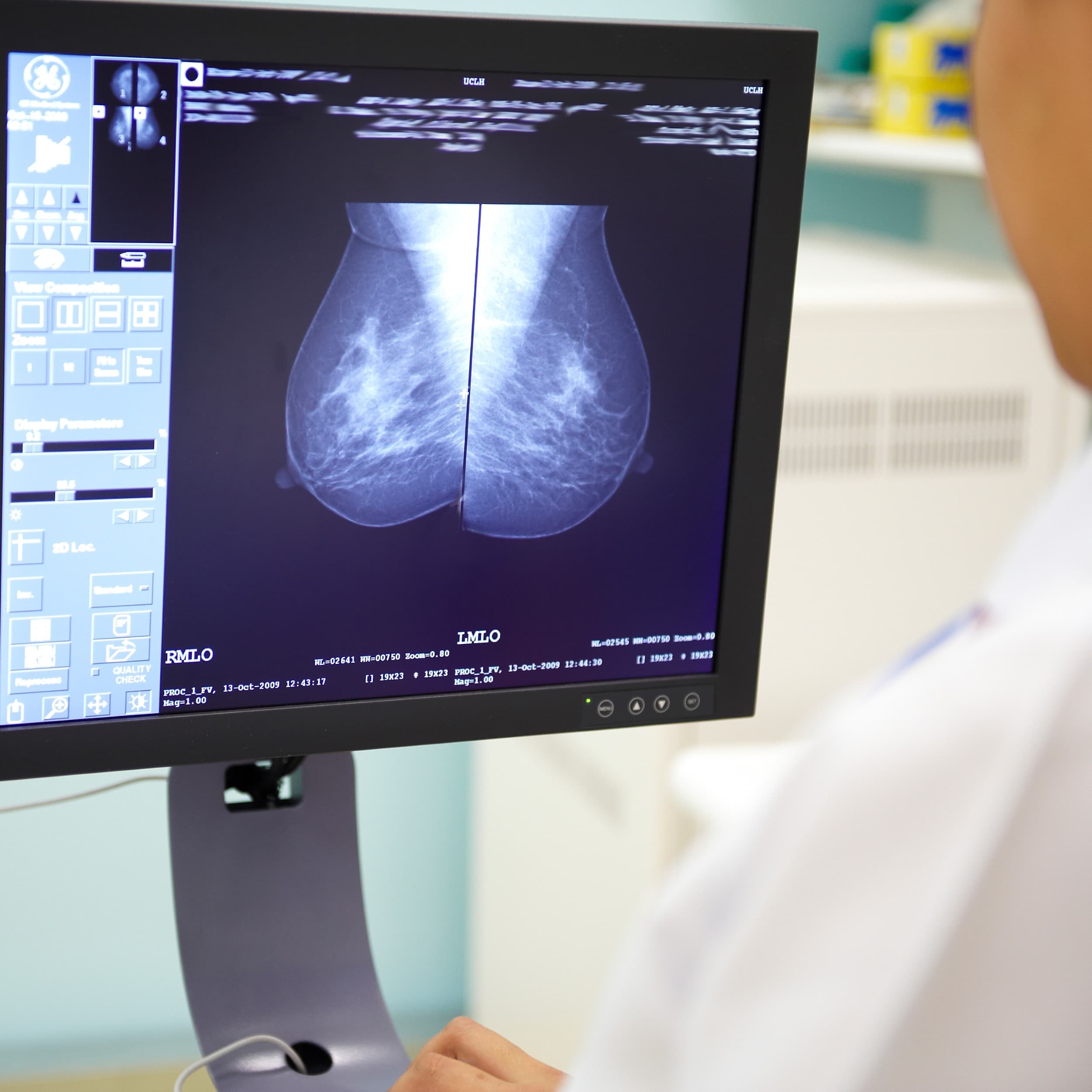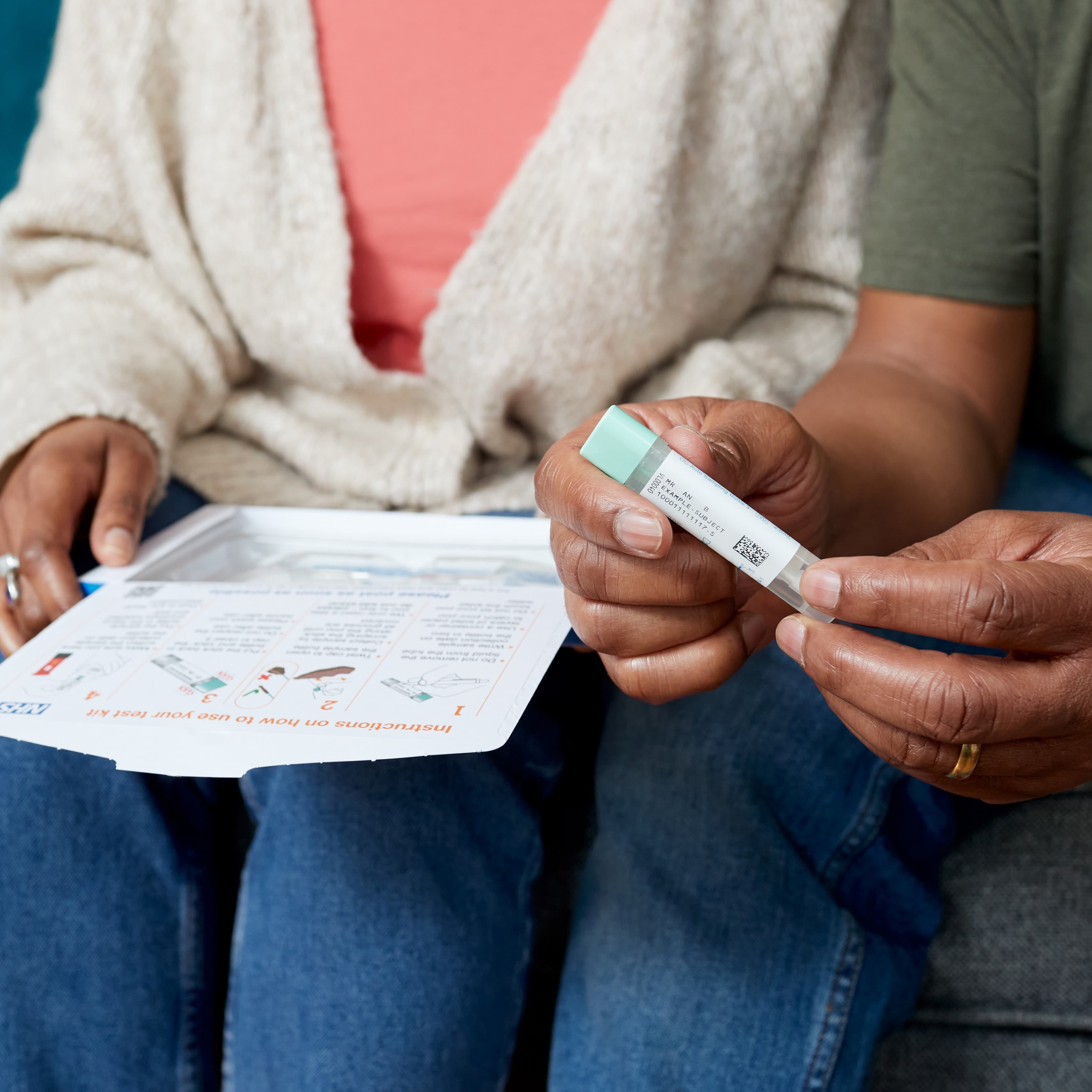
In this roadmap, we outline a shared vision for a long-term future where early detection and diagnosis of all cancers and proactive health management is standard practice. It then articulates a plan for how we get to that future.
We’re asking everyone from researchers to regulators, patients and the NHS to work together and realise a future where early detection and diagnosis is a routine reality. We also call on the UK government and devolved nations’ equivalents to create a system for leadership and accountability in early detection and diagnosis and address the cross-cutting barriers facing research in this area.
In the roadmap, we have identified four key themes for making the future of early detection and diagnosis research, development and healthcare a reality, each highlighting challenges and actions for the early detection and diagnosis ecosystem.
Understanding risk and prognosis: biology to technology
Biomedical data and systems
Incentivising and supporting development and commercialisation
Health care system innovation and accelerating adoption
Download our full roadmap to find out more or explore its key recommendations below.
View our roadmapTo overcome the current challenges around identifying who is most at-risk and to minimise the risk of overtreatment, we recommend:
longitudinal study of very early/pre-cancers to determine whether or not they are lethal
using routine NHS patient touch-points for risk stratification, early detection and diagnosis
bringing flexible risk-adapted screening to national cancer screening programmes
To address barriers to data access, the lack of data science in ED&D and platforms for integration of biomolecular data with personal, health system and population data, we recommend:
using e-health records and AI-assisted early symptomatic cancer diagnosis in primary care
generating novel AI risk stratification in the asymptomatic public
developing wearable, implantable and digital technology for ‘real-time’ health monitoring
creating a digital health twin system; lifelong, personalised digital models mirroring individual health history
To tackle the current lack of incentives and the blockers to developing, investing in and commercialising new early detection and diagnosis approaches, we recommend:
creating an economic health model for early detection and diagnosis
establishing a health innovation incubator to support new start-ups in early detection and diagnosis
creating a platform for validation and evaluation of new diagnostics in cancer referral pathways
To address the challenges of regulation and commissioning in early diagnosis and detection not being fit-for-purpose, we recommend:
creating a UK body to assess the early detection and diagnosis product pipeline and set target product profiles
generating cancer site-specific early detection and diagnosis roadmaps to deliver effective research and clinical practice
optimising and automating NHS pathways in early detection and diagnosis
developing of a platform for dynamic patient and public consultation on early detection and diagnosis
For each theme, we also have recommendations for government policy changes to support the progression of early detection and diagnosis in the UK.
To address cross-cutting barriers, the UK government and devolved nations’ equivalents should:
explore a new model of health-check centres for asymptomatic people
accelerate quality, ethical collection and access to patient data for early detection and diagnosis
address the market failure in early detection and diagnosis

We coordinated a panel of experts to explore the status of alternative surrogate endpoints for cancer mortality that could provide evidence of utility faster.
Their findings were published as a review in the Lancet Oncology, presenting the current landscape and challenges of using surrogate endpoints for cancer screening trials.

Cancer Data Driven Detection is a joint initiative between the National Institute for Health & Care Research, the Engineering & Physical Sciences Research Council, Health Data Research UK and Administrative Data Research UK. The consortium aims to generate new data-driven models that significantly increase the accuracy of predicting cancer risk, enabling more precise targeting of early detection and prevention therapies.

Innovative risk-based approaches are a key feature of the future cancer landscape with implications for both early detection and cancer prevention. Read our report to find out the key requirements for public acceptability of these emerging risk-based cancer screening and diagnostic technologies.
Download executive summary(PDF)
Download report(PDF)
Contact us to learn more about innovative risk-based approaches

Target product profiles are critical for accelerating progress in cancer early detection and diagnosis.
Find out more in our report exploring how they can support robust innovation in earlier cancer diagnosis.
Download this executive summary(PDF)
Download this report (PDF)
Download annexes (PDF)
Do you have an idea, a technology or an interest in early detection and diagnosis research? We have a range of funding and research opportunities for all career stages and in any research field which can impact on earlier detection and diagnosis of cancer.
Are you interested in our policy initiatives to enable implementation of early detection and diagnosis in the health care system? Explore early diagnosis initiatives, tools and information to support health professionals in increasing the early diagnosis of cancer.